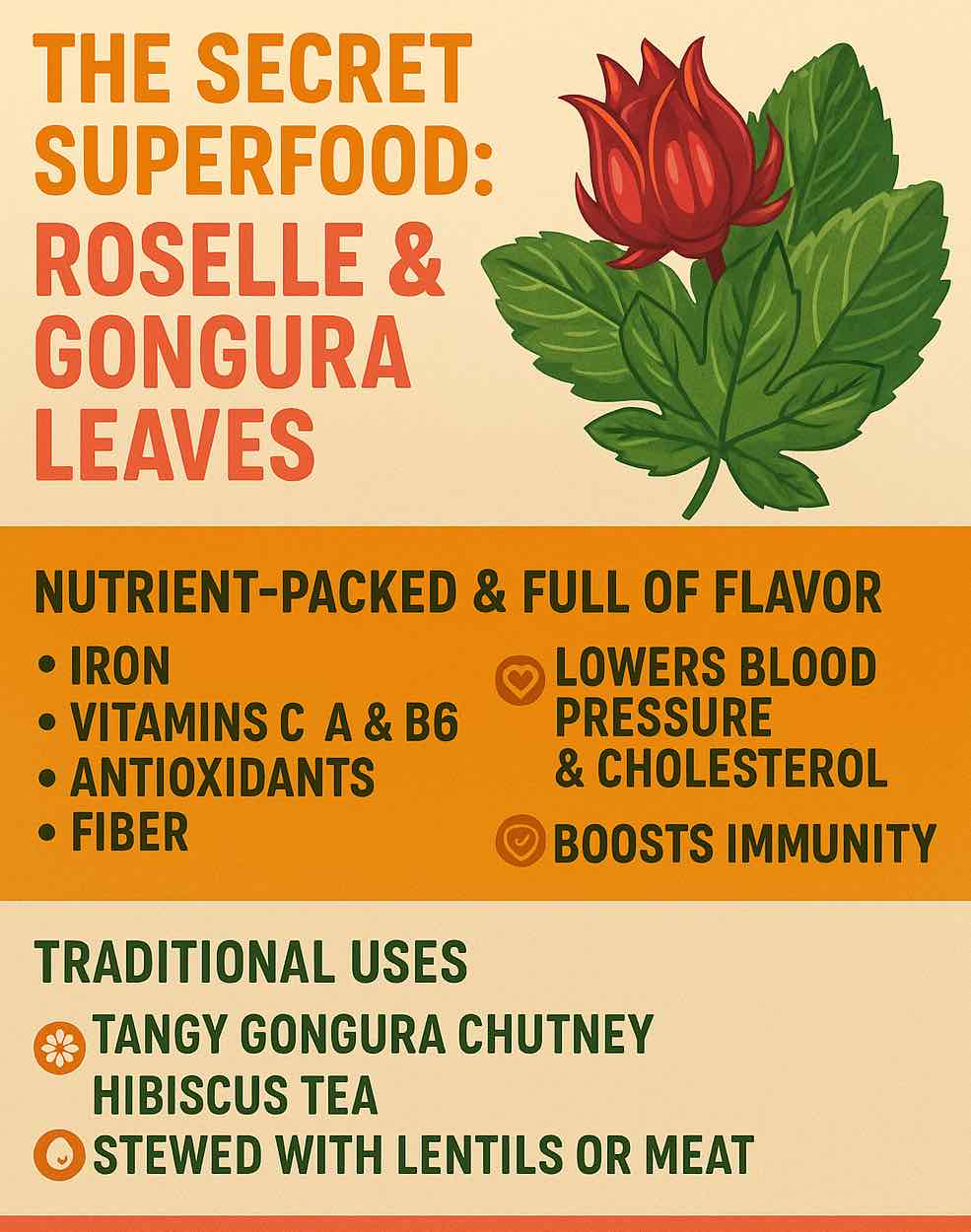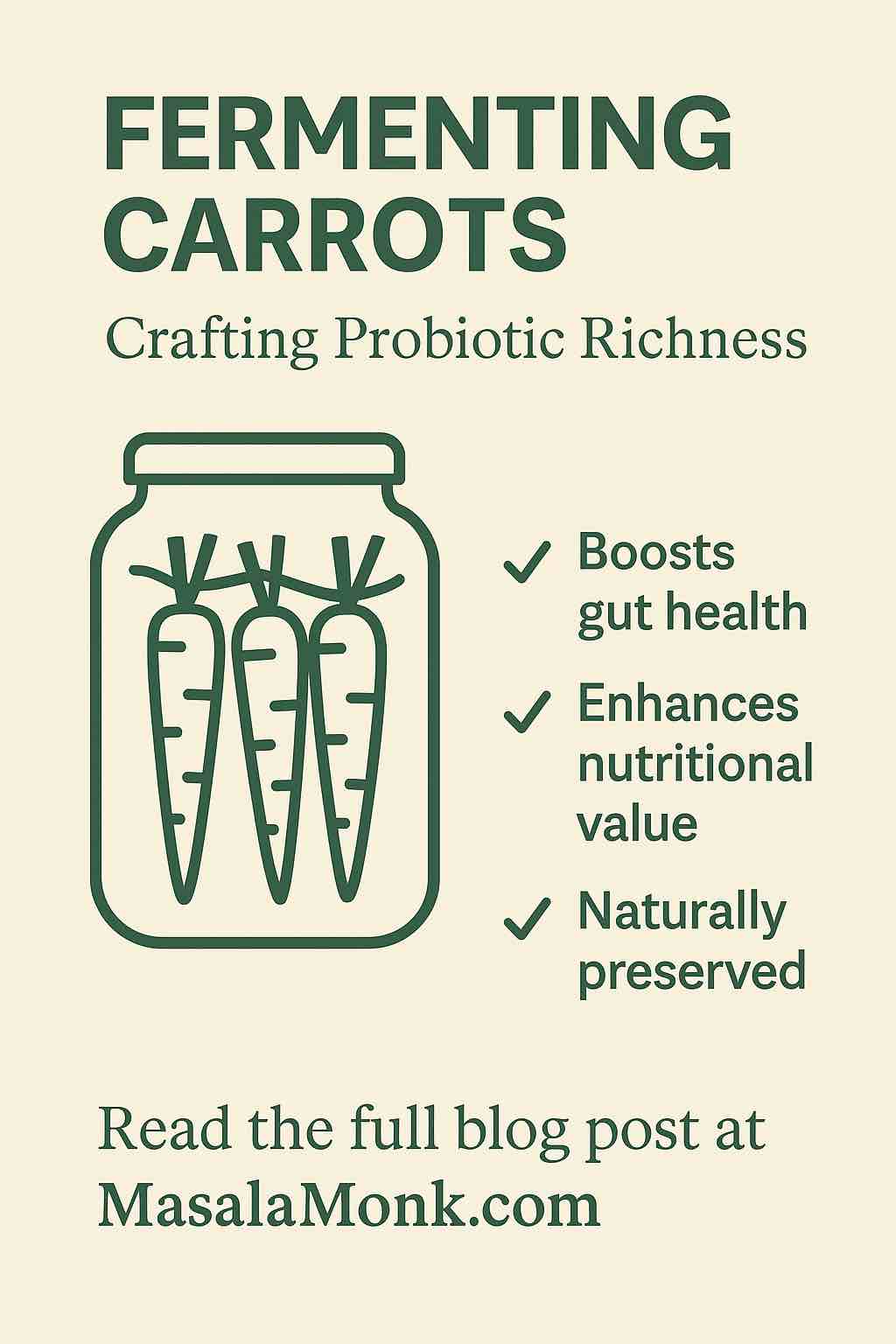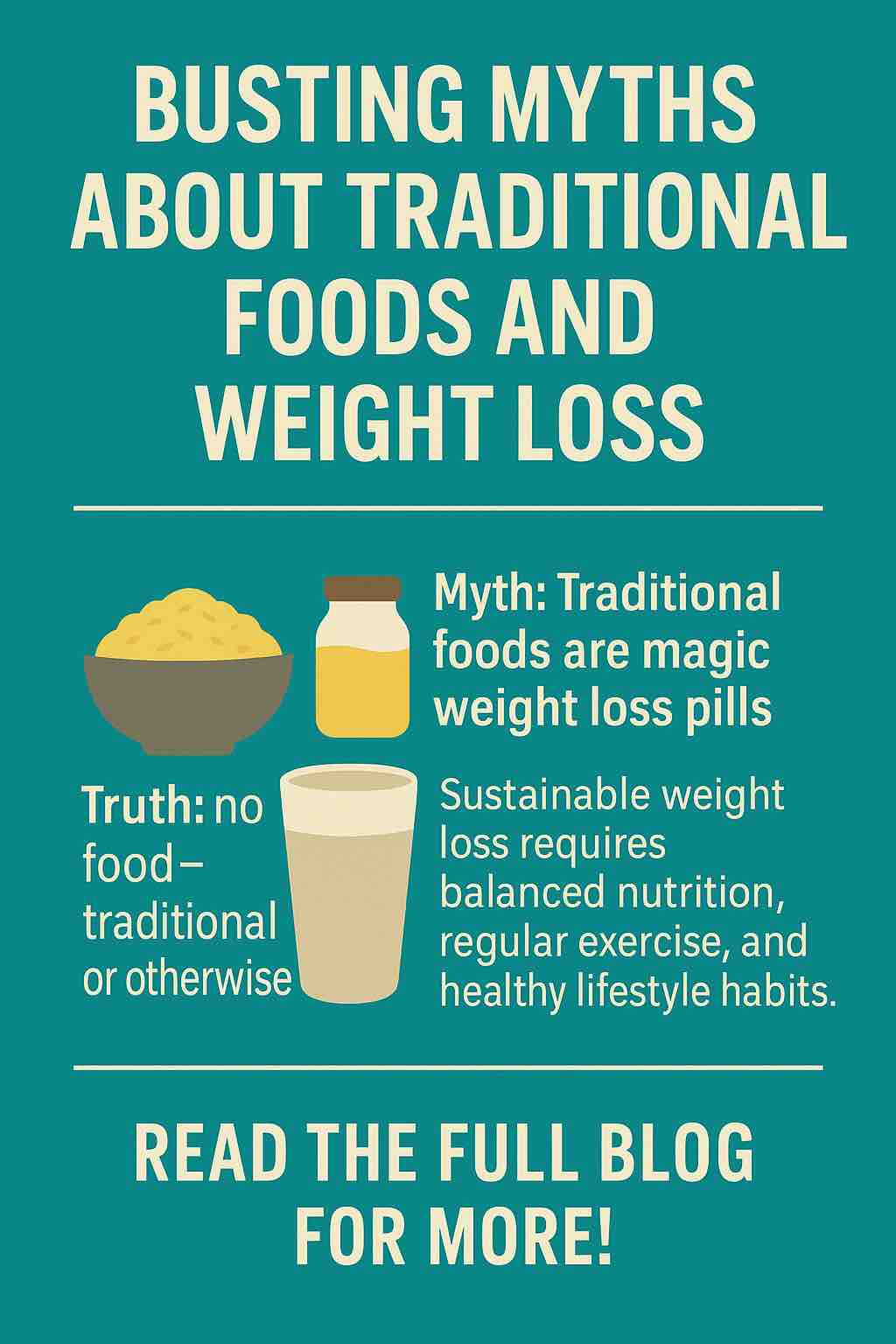
Tangy. Nutritious. Ancient. Scientifically backed. Discover why Roselle and Gongura should be your next pantry staple!
Introduction
In a world obsessed with kale, avocados, and blueberries, an ancient leafy green quietly shines in home kitchens across India, Africa, and the Caribbean. Roselle (Hibiscus sabdariffa) and its leafy cousin, Gongura (popular in South India), are finally stepping into the global superfood spotlight. Their vibrant flavor, powerhouse nutrition, and now—cutting-edge science—make them an essential for anyone serious about health.
What Are Roselle and Gongura?
- Roselle is a species of hibiscus, grown for its tart calyces (used in teas, jams, drinks) and nutritious leaves.
- Gongura refers to the leaf variety of Roselle, famed in Andhra and Telangana cuisines (India) for its unique tang.
🌱 Nutrition & Phytochemistry: Why Are They So Special?
Both leaves and calyces (the red outer “fruits” used in hibiscus tea) pack an extraordinary nutritional punch:
Key Nutrients
- Vitamins: C (immunity), A (vision/skin), B6 & B9 (energy, brain), riboflavin, niacin.
- Minerals: Iron (higher than spinach!), calcium, magnesium, potassium, phosphorus, zinc.
- Phytochemicals: Polyphenols, flavonoids (quercetin, kaempferol), anthocyanins (in calyces), protocatechuic acid.
- Fiber: Supports gut health and satiety.
- Antioxidants: Extremely high—neutralizes free radicals, reduces inflammation.
🧬 What Does the Science Say? Latest Research (2024–2025)
Forget the hype—what do clinical trials show?
1. Blood Pressure & Heart Health
- Multiple recent meta-analyses and RCTs confirm:
- Regular consumption of Hibiscus tea/capsules lowers systolic and diastolic blood pressure by 5–8 mmHg (comparable to some medications for mild hypertension!).
- LDL cholesterol drops by 7 mg/dL; triglycerides improve as well.
2. Blood Sugar & Metabolic Syndrome
- A 2025 Bangkok trial: Roselle extract in people with abdominal obesity and mild metabolic syndrome reduced fasting glucose, improved insulin sensitivity, and lowered triglycerides within weeks.
- 2024 Tunisia pilot: 1 month of hibiscus tea dropped blood sugar by 47%, HbA1c by 9.5%, triglycerides by 60%, cholesterol by 39%, and BP by 17% (in type 2 diabetics and hypertensives).
3. Cognitive Boost
- March 2025 study: A single dose of anthocyanin-rich hibiscus tea improved memory, executive function, and cardiovascular markers in healthy adults.
4. Other Emerging Benefits
- Hepato- and nephro-protective: Supports liver and kidney health.
- Antimicrobial & anti-inflammatory: Fights common bacteria, fungi; calms inflammation.
- Potential anti-cancer effects: Inhibits tumor-promoting pathways (in animal studies).
5. Safety
- Generally safe, with rare side effects (mild digestive upset at high doses).
- No significant interactions reported with moderate intake.
🍲 How to Use Roselle & Gongura: Practical Kitchen Guide
Gongura (Roselle Leaves):
- Chutney: South India’s iconic Gongura pachadi—tangy, spicy, pairs with rice or dosa.
- Dal (Lentils): Add chopped leaves to dal for a tart, iron-rich boost.
- Stir-fries: Sauté with garlic, chilies, and onions—treat like spinach but enjoy the tang!
- Stews & Curries: Uplifts chicken, fish, or prawn curries.
Quick Recipe: Gongura Dal
- Boil 1 cup toor dal (split pigeon peas) until soft.
- Sauté onions, garlic, chilies, add 2 cups chopped gongura leaves, cook till wilted.
- Mix dal + sautéed leaves. Add salt, turmeric. Simmer 10 min. Top with cumin-mustard seed tempering.
Roselle Calyces:
- Tea: Boil calyces in water 5–10 min, sweeten if desired—enjoy hot or iced (“sorrel” in the Caribbean).
- Jam/Sauces: Calyces cook into brilliant crimson jam—great with toast or cheese.
- Drinks: Blend with fruit juice or lemon for a tart, antioxidant-packed beverage.
🌍 Traditional Wisdom Meets Modern Science
- Ayurveda & Folk: Used for fever, digestion, anemia, infections, skin health.
- Africa & the Caribbean: Known for “sorrel” drinks, pickled calyces, medicinal teas.
- Asia: Stews, chutneys, soups—especially for post-partum recovery.
Modern science is validating centuries of traditional use: Roselle and Gongura aren’t just flavorful—they’re functional.
🛒 Buying, Storing, and Using
- Fresh: Buy from Indian, African, or Asian groceries; look for vibrant green (leaves) or red (calyces), avoid wilted or slimy.
- Dried: Calyces are widely available online for tea; dried leaf powders are emerging in global health markets.
- Storage:
- Fresh leaves: Refrigerate in a loose bag, use within 4–5 days.
- Calyces: Air-dry for long storage, or freeze.
💡 Pro Tips
- Tartness varies: Red-stem Gongura is more sour than green-stem. Use accordingly.
- Pairing: Acidic leaves replace tamarind or lemon in recipes.
- Max nutrition: Steam or sauté lightly; boiling is fine but discard excess water if you want less tartness.
- Chutney hack: Add sesame or peanuts for protein and texture.
⚡️ Who Should Try Roselle & Gongura?
- Anyone with pre-hypertension or high BP
- Those seeking more plant iron (esp. vegetarians)
- People with metabolic syndrome or early diabetes
- Anyone bored of spinach!
- Note: Those with kidney stones or on potassium-sparing diuretics should consult their doctor (leaves are high in potassium and oxalates).
📈 Bottom Line
Roselle and Gongura leaves are among the world’s most underappreciated superfoods—delicious, versatile, and validated by cutting-edge science for real-world health benefits. They’re not a “magic cure,” but when added to a balanced diet, they can support heart, metabolic, and overall well-being.
🥄 Ready to Try?
- Pick up some Gongura leaves or Roselle calyces this week.
- Try a simple dal, tea, or chutney recipe.
- Notice how they add a lively tang and deep nutrition to your meals!
Have you tried Roselle or Gongura yet? Share your experience or questions in the comments below!
FAQs
1. What is the difference between Roselle and Gongura?
Roselle (Hibiscus sabdariffa) is the plant species; its tart red calyces are used for tea and jams worldwide. Gongura refers to the edible green leaves of Roselle, especially popular in Indian cuisine for their tangy taste.
2. Are Roselle and Gongura safe for daily consumption?
Yes, both are generally safe when eaten in normal food amounts. Most studies report no serious side effects. If you have kidney issues, consult a doctor before frequent use, as the leaves are high in potassium and oxalates.
3. Can I use Roselle leaves and calyces interchangeably in recipes?
No. The calyces are intensely tart and used for drinks, teas, and preserves. The leaves (Gongura) are used more like spinach or other greens in curries, stews, and chutneys.
4. Where can I buy Roselle or Gongura?
Check Indian, African, or Asian grocery stores for fresh leaves. Dried calyces for hibiscus tea are widely available online and in many supermarkets worldwide.
5. What are the key health benefits of these superfoods?
Scientific studies show they can help lower blood pressure, support heart health, improve lipid profiles, aid in blood sugar control, provide antioxidants, and support liver and kidney health.
6. Are there any side effects or contraindications?
Very rarely, some people may experience mild digestive upset. People prone to kidney stones or on potassium-restrictive diets should moderate intake or seek medical advice.
7. How should I store Roselle calyces and Gongura leaves?
Fresh leaves: refrigerate in a loose bag, use within a week. Calyces: air-dry or freeze for longer storage. Dried products should be kept in airtight containers away from moisture.
8. How much should I consume to get the health benefits?
Human studies use 1–3 cups of hibiscus tea daily or 2–3 servings of leaves weekly. For general health, including the leaves or tea a few times per week is a practical and safe approach.
9. Can pregnant or breastfeeding women eat Roselle/Gongura?
Traditionally, they are eaten by women in India (including postpartum). However, there is limited research on high-dose supplementation during pregnancy, so moderate, food-level consumption is considered safe.
10. Do these superfoods interact with any medications?
Large amounts of hibiscus/roselle can potentially lower blood pressure and blood sugar, so monitor if you’re on related medications. Always check with your healthcare provider for personal guidance.













